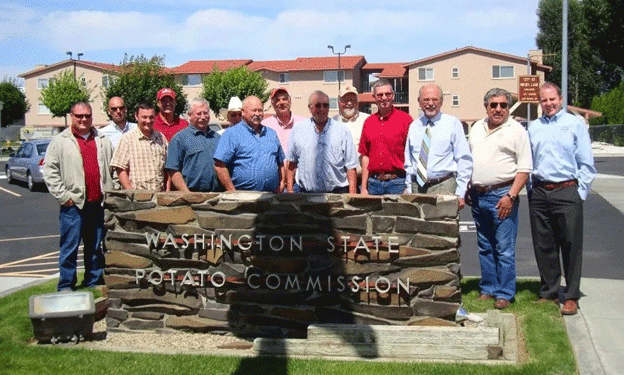In 2024, Washington State farmers shattered the world record for potato yield, producing an astounding 111,343 pounds per acre, equivalent to approximately 125 tonnes per hectare. Officially recognized by the World Record Academy, this achievement is not only a triumph for Washington but also for the global agricultural industry, as it demonstrates the growing potential of precision farming technologies.
This leap in productivity signals an evolution in how potatoes—and perhaps other crops—can be grown in the face of climate change and resource challenges. Washington, a state already renowned for its agricultural output, has leveraged its favorable conditions and state-of-the-art technologies to secure its place at the forefront of modern farming.
Advanced Farming Techniques Behind the Success
Washington’s record-breaking yield owes much to advanced farming methods that optimize water, nutrients, and soil conditions through precision technologies. GPS-guided planting, real-time crop monitoring, and sophisticated irrigation systems allowed growers to fine-tune every aspect of potato cultivation. These techniques not only enhanced productivity but also minimized resource wastage, a key concern in today’s agricultural landscape.
While exact details of the methods remain proprietary, agricultural experts point to this record as a clear signal of how technology can revolutionize potato farming. The increased adoption of precision farming technologies across the industry may lead to more sustainable, high-yield farming operations in other regions as well.
Ideal Growing Conditions in Washington
Washington’s unique geographic and climatic conditions also played a pivotal role. Its rich, volcanic soils, steady access to irrigation from rivers, and mild weather created the perfect environment for potato cultivation. These natural advantages, combined with skilled farming practices, allowed Washington growers to extract the highest potential from their crops.
Despite global challenges like climate change, Washington’s adaptability and innovation continue to shine. The state’s growers have set a benchmark, showing that even in the face of adversity, sustainable and efficient farming is not only possible but can lead to record-setting success.
Russet Burbank: The Potato Behind the Record
The variety that made this record possible is the Russet Burbank, a favorite in the fast-food and processed foods industries. Known for its consistent size, shape, and texture, it’s a high-demand potato worldwide, especially for French fries and baked potatoes. However, the Russet Burbank is also a challenging crop, requiring a longer growing season and substantial water input, making the record yield even more impressive.
Washington growers expertly managed these challenges, balancing high water demands with sustainable irrigation practices. The result: a high-yield crop that not only broke records but set a new standard for potato farming.
Global Implications for Potato Farming
This record-breaking yield could have far-reaching implications for the global potato industry. As demand for potatoes continues to rise, particularly in fast food and processed products, the industry will need to produce more with fewer resources. The methods used in Washington offer a model for increasing yield sustainably.
Countries around the world could adopt similar strategies to meet growing consumer demand while maintaining environmental responsibility. This shift toward high-efficiency, high-yield farming practices will be essential as the agricultural industry grapples with resource constraints, climate change, and food security challenges.
A Vision for Sustainable Potato Farming
Washington’s new world record isn’t just a singular achievement; it represents a major step forward in sustainable, tech-driven agriculture. As global food demands rise, innovations like those seen in Washington will be crucial in meeting them without exhausting natural resources.
By successfully blending advanced technology, sustainability, and practical farming expertise, Washington’s growers have shown the world what’s possible when cutting-edge methods are applied to traditional agriculture. This achievement sets a new bar for future potato yields and highlights the potential for sustainable intensification in farming worldwide.







